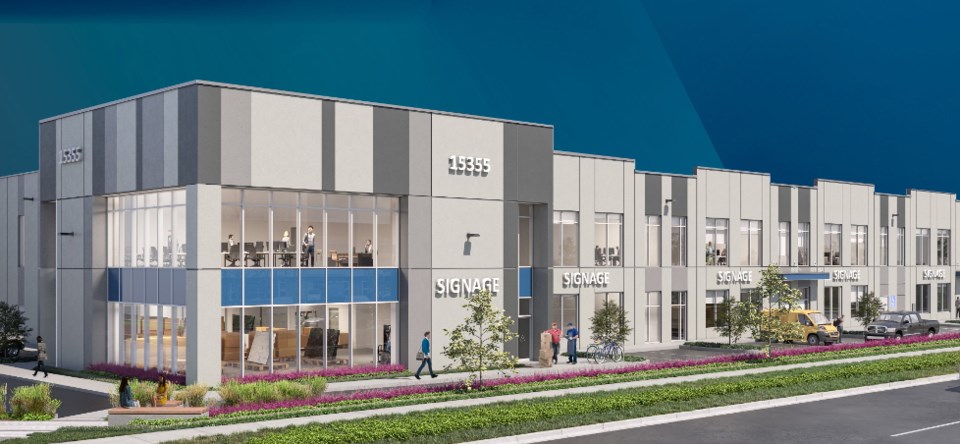There’s hope in sight after a year of supply chain disruptions and outsized construction cost increases, according to a panel commercial real estate association NAIOP hosted in Vancouver on Oct. 27 focused on the industrial market.
While strong demand earlier this year gave many builders confidence that the market would be able to absorb cost increases, six successive interest rate hikes have put the brakes on deals for space and construction intentions.
“Residential and commercial [builders] have paused projects,” said Ben Taddei, chief operating officer with the Conwest Group, which is both a developer and also operates a contracting division.
Contracting activity has slowed significantly this year with housing starts in Metro Vancouver through September down 10 per cent versus last year with further slowing expected.
“So what does that mean?” Taddei asked. “Some prices have to come down.”
This is what Josh Gaglardi of Orion Construction Corp. of Langley is starting to see. Speaking with Western Investor in July, he said the cost of some materials had doubled since 2020. Orion is now expecting prices to pull back by an average of 10 to 12 per cent over the next year.
“We’re starting to see a very, very slow settling of construction costs,” he told NAIOP. “Right now we’re getting trades calling us more often asking what projects we have going on, do you have work, whereas two years ago you had to call those trades and say, ‘Hey, do you want to work for me? Can you work for me?’”
While labour remains tight, higher financing costs are giving some developers pause, reducing demand and freeing up supplies.
But the long-term outlook remains positive, because of the constrained land supply. This will support asset values, meaning that any pause in the market will eventually become history and activity will resume.
“Peak land pricing is probably coming down, so when the groups are ready to jump back in, they’ll probably feel a lot more comfortable,” said Ryan Kerr, a principal with Avison Young specializing in industrial properties. “Ideally, land will get to a place where [income-producing properties] can be built and these projects can fulfill the need for new space in the market.”
Metro Vancouver industrial land values peaked at $13 million an acre for the Celtic Shipyards property in South Vancouver, $10 million an acre in Richmond and approximately $8 million an acre in Port Kells, according to Avison Young.
Altus Group reports that the average industrial land prices in Metro Vancouver this year has fallen from a high of $4.7 million an acre in the second quarter to $3.3 million in the third quarter, according to preliminary data.
Kerr feels that any drop in demand for properties from local buyers will be filled by institutional investors, who still have plenty of cash to place. Altus reports that industrial properties have been of particular interest to institutional investors this year as a stabilizing component in portfolios rocked by volatility in the stock market. A moderation in asset values will support investment decisions.
“The land pricing adjustment is a good thing,” Kerr said. “It was becoming a bit drunken college party-exciting, so seeing [prices] come down and normalize a bit, so it’s not so scary, is a great thing.”
The shift should create opportunities, Taddei added.
“Change brings opportunities. When the market is constant, there’s no opportunity,” he said. “If you’re in the game, and you know what you’re doing and you have good relationship and you’re well capitalized and all those good things, you can do well in those markets.”
While demand for strata units has stalled, and other assets are in a price discovery period as sellers realize what today’s buyers are willing to pay, Taddei says Conwest is patient.
“We believe this market is not going to last forever. There is no inventory. We will get our price. We just have to wait for it,” he said.


